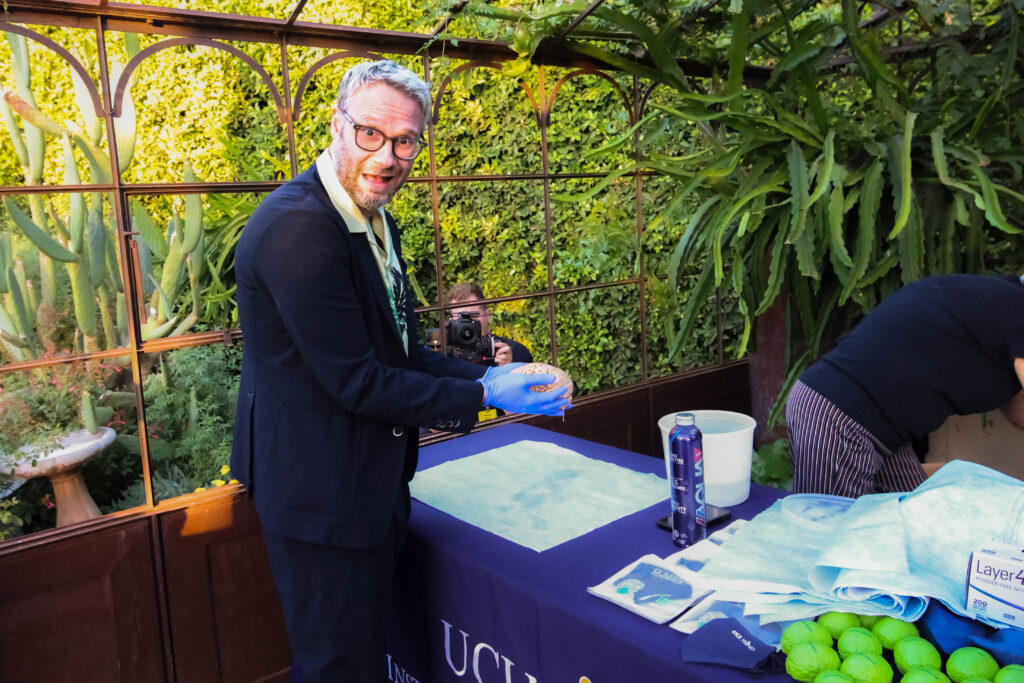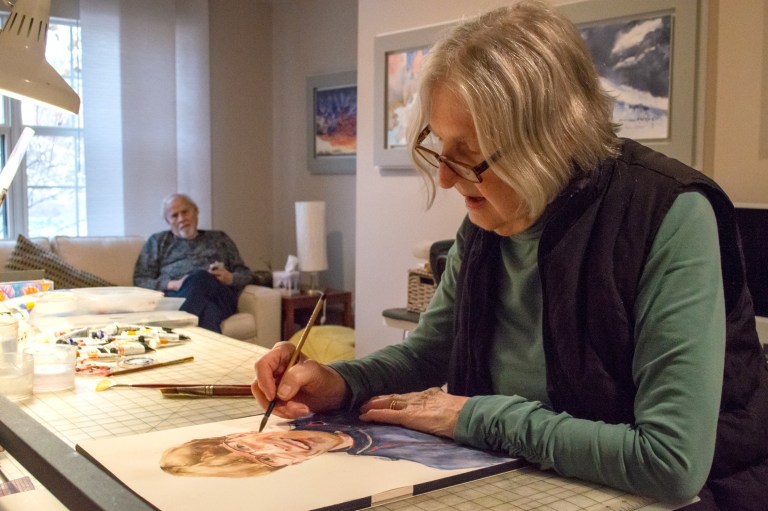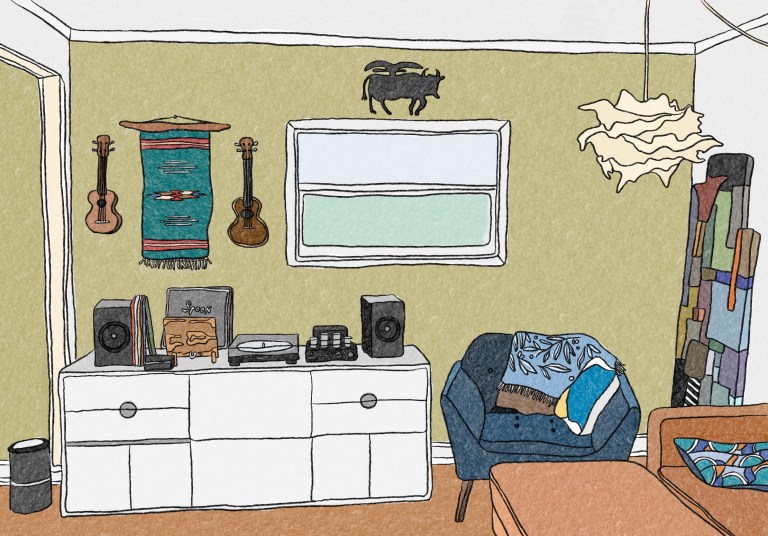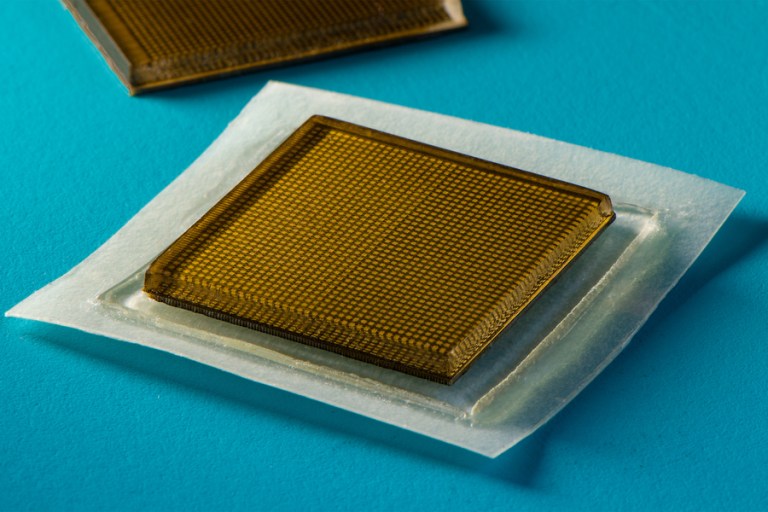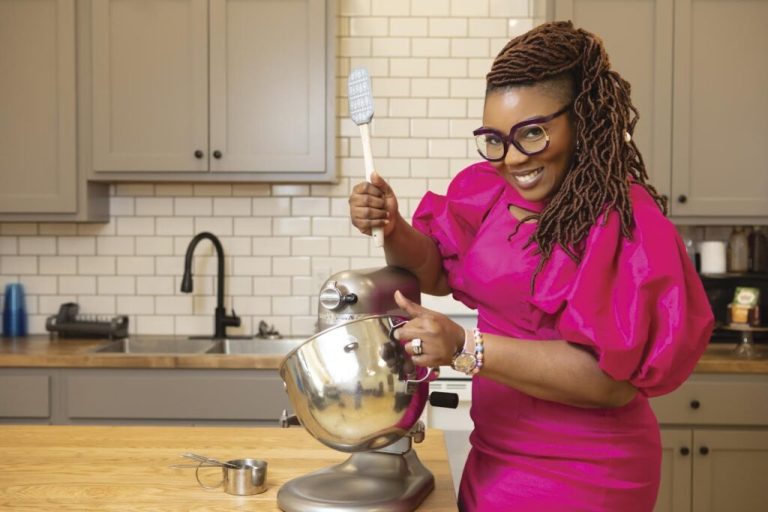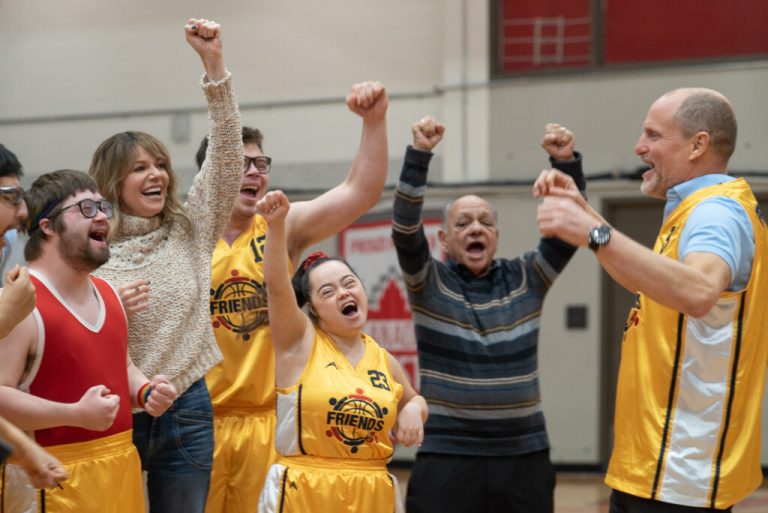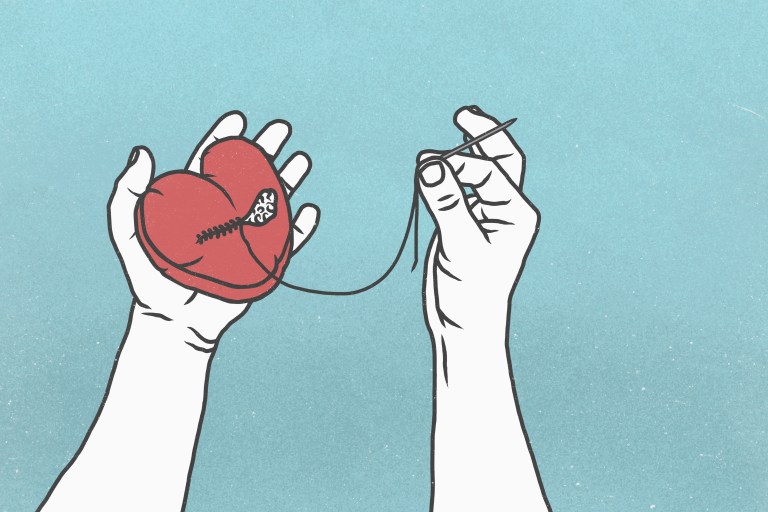Alzheimer’s can be a devastating disease, and it’s one that touches so many: More than 6 million Americans may be living with the neurological condition. So it might seem unnatural to approach it with comedy, but for Seth Rogen and wife Lauren Miller Rogen, it’s the only way they know how.
“It’s kind of just the only tool we personally have,” Seth told Nice News. “We’re comedians and all of our friends are comedians … and so the idea of doing that to raise awareness and money for Alzheimer’s was just very organic to who we are.”
The Freaks and Geeks star founded the nonprofit Hilarity For Charity, or HFC, with Lauren in 2012, a few years after her mom was diagnosed with Alzheimer’s. It started with one comedy fundraiser and has since grown into a sweeping organization.
Today, HFC helps fund new technology and prevention-focused research; educates people on brain health via social media and a dedicated digital platform; and provides support and resources to caregivers who are looking after loved ones with Alzheimer’s.
Those resources include various support groups, something Carlos Olivas has benefited from as he cares for his father. He said he found HFC through a Facebook post in 2019, about four years into his dad’s Alzheimer’s diagnosis.
“It provides me levity when I need people who are understanding, that are nonjudgmental, and can provide support,” Olivas shared, adding, “I can laugh, cry, share details that I don’t share with normal people. I’m able to vent in a way that is understood by others who are going through this journey themselves.”
He continued: “It is necessary for us to realize that we’re not alone. We are not isolated. We have a lifeline in many ways, it’s a rope line where we can grab a hold of and reach out for help, if we need it.”
The caregiver program, which also offers grants to caregivers so they can take time off to rest and recharge, was born from Lauren’s family’s experience with the disease — her dad was her mom’s primary caretaker and sometimes needed a break. “While research for tomorrow is of the utmost importance, so is helping people that are dealing with this terrifying nightmare of a disease in the moment that they are going through it,” she said.
She added that the Alzheimer’s prevention side of HFC is also particularly exciting for her, as it feels like a space where the organization — and everyone who learns from its resources on living a brain healthy lifestyle — can really make a difference.

Lauren and Seth said they’ve both tried to adjust their lifestyles based on Alzheimer’s and dementia research and the medical experts at HFC. “Sleep and exercise and nutrition were things that we were not maybe living the most brain healthy versions of,” Seth said. “And we’ve gotten much better over the years.”
Dr. Annie Fenn, one of those experts, specifically championed the importance of nutrition when it comes to brain health. Like Lauren, her journey to the world of Alzheimer’s research and prevention was personal: She practiced as an OBGYN for decades before becoming a chef and food writer, and tapped into both schools of knowledge when her mom was diagnosed with mild cognitive impairment, often an early stage of Alzheimer’s.
“I put on my doctor hat, I brought all my culinary knowledge to the table, and I did a deep dive into the research about which foods could possibly slow down the process when someone has [mild cognitive impairment],” she said. That research led to the 2015 founding of Brain Health Kitchen, a cooking school and blog focused on helping people prevent cognitive decline through food and lifestyle.
“There was so much evidence, even back then, that we could eat a certain way to protect our cognitive health later in life, and that nobody knew about this,” Fenn said. “So I just wanted to spread the word.”
She joined HFC as a science advisor around 2018, and helps convey the latest nutrition research through educational programs, which include social media campaigns, brain health dinner parties, and talking to caregivers about taking care of themselves.
Her top brain health tip is boosting your intake of “neuroprotective” foods, like leafy greens, vegetables, berries, nuts, fish and seafood, and high quality olive oil.

Physical exercise is also part of a brain healthy lifestyle, but it doesn’t have to be a traditional gym session: “The studies are showing that daily movement, even gentle movement throughout the day that’s not even a workout — maybe just gardening or walking — actually counts to reduce dementia risk,” Fenn said.
She added that it is still optimal to get at least 150 minutes of cardiovascular exercise every week and to incorporate muscle-building resistance training, like lifting weights or using resistance bands, into your routine.
Stress mitigation, getting plenty of sleep, and building up your cognitive reserve — meaning your brain’s ability to adapt and resist age or disease-related changes — are all important additional factors, Fenn said.
Like Olivas, she also referenced HFC’s commitment to levity as a standout feature of the organization, calling it a “superstar” nonprofit.
“Laughter is a brilliant way to get people to talk about Alzheimer’s and cognitive health, because up until just a few years ago, nobody was talking about brain health. Nobody was talking about the fact that our Alzheimer’s rates are skyrocketing. And everyone was just sort of afraid to bring it up,” Fenn said, adding, “HFC has been able to reach younger brains, because they are doing it in a playful, funny way that is proactive and centered around taking care of your brain.”
At the end of the day, Seth said the condition’s darkness is the reason why levity is so important. “It is such a dark disease, and I think bringing light and bringing levity is maybe a little more necessary with Alzheimer’s than it is with some other aspects of life,” he said. “It is nice to also be able to add some lightness in that dark.”
Click here to donate to Hilarity For Charity through Nice News’ November Cause of the Month.
